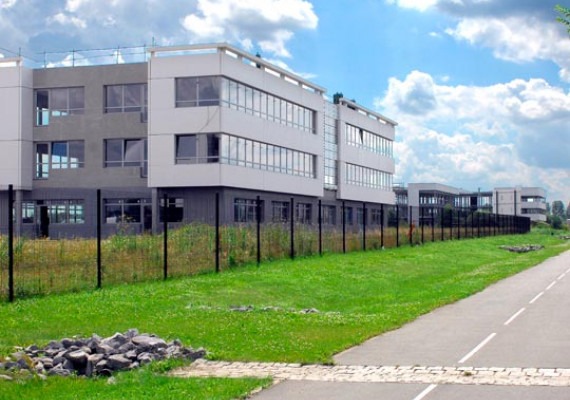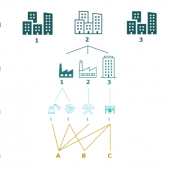BISEPS

Business Clusters Integrated Sustainable Energy PackageS
Priority Axis
Low Carbon TechnologiesSpecific objective
Low Carbon Technologies
Lead partner
Intercommunale LeiedalContact
Date de début
01/05/2016Date de fin
30/04/2021Project budget
3 480 467 €ERDF amount
2 088 280 €ERDF rate
60%À propos
Common challenge
The scale of business clusters (such as business parks) fits spatially and energetically very well with mid-size sustainable energy solutions, such as heat exchanges, wind energy, biomass, combined heat & power, smart grids or other large scale solar energy solutions. However, whilst these clusters offer great potential for greenhouse gas reduction, businesses sometimes do not adopt sustainable energy solutions due to the complexity involved.
The challenge for BISEPS project was to enhance market uptake of midscale sustainable energy technologies by clusters of businesses and create synergies within business clusters. Existing barriers to implement available solutions (including technical, but also financial & organizational) needed to be overcome. This would result in fewer carbon emissions and a greener & more competitive 2 Seas area.
Overall objective
Main outputs
Cross border approach
Main Achievements
The hypothesis of BISEPS was proven to be spot-on: there is an enormous untapped sustainable energy potential with business parks. Being one of the first projects to put a spotlight on this theme, project partners were recognised as frontrunners and innovators by peers and policy makers.
The project showed that SMEs are eager to join the process, leading to a massive number of business cases, much more than was initially expected. Tens of millions of Euros could be invested, but there is a huge step-up to implementation. SMEs tend to look for an easy, risk-free solution that can be swiftly implemented as energy is not their core business.
The BISEPS partnership showed creativity and inventiveness to come up with solutions. To make it easier for SMEs, technical, legal and organisational solutions were explored. This included: making business cases for direct lines, participation in national test programmes on collective self-consumption, nudging via peer pressure, creating a concept for a Central Energy Management Company and create a Green Deal with key stakeholders.
Testimonial

The hypothesis of BISEPS was proven to be spot-on: there is an enormous untapped sustainable energy potential on business parks. Being one of the first projects putting the spotlight on this theme, the BISEPS-partners got recognized as frontrunners and innovators by peers and policy makers.
